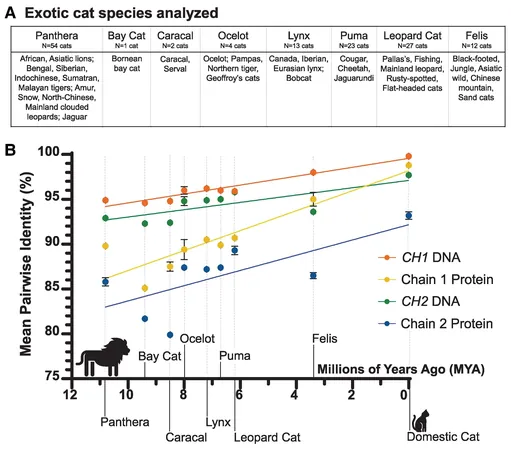
Anthropic Unveils Innovative ‘Styles’ Feature in AI Revolution – A Game Changer for Business Communication!
2024-11-26
Author: Rajesh
In a bold move to redefine how businesses utilize artificial intelligence, Anthropic, a prominent player in the AI sector backed by significant tech investments, has announced an exciting upgrade to its Claude AI assistant. This new feature, dubbed “styles,” allows users to tailor the AI's communication style, marking a substantial leap forward in the AI arms race.
Launching today on Claude.ai, the "styles" feature enables users to set specific modes for Claude’s responses, offering options such as formal, concise, or explanatory. Moreover, users can further personalize their interactions by uploading content samples that reflect their desired communication style.
Custom Communication: The New Frontier of AI in Business
As the AI landscape grows ever more competitive, with heavyweights like OpenAI’s ChatGPT and Google’s Gemini leading the charge, differentiation is key. Unlike many AI assistants that default to a singular communication style, Anthropic recognizes that various business environments necessitate different forms of interaction. This strategic insight could revolutionize how enterprises integrate AI into their operations.
An Anthropic spokesperson highlighted the potential of this feature, stating, “Right now, many users may not realize they can dictate how AI responds. The styles feature not only breaks this barrier but also educates users on unlocking capabilities they might have deemed out of reach.”
Early adopters, including GitLab, are already reaping the benefits. The company has seamlessly integrated Claude's new functionality into numerous workflows. "Claude's ability to adopt a consistent yet adaptable voice for different contexts empowers our teams to use styles for diverse tasks such as crafting business proposals, updating documentation, and creating marketing content," said Taylor McCaslin, Product Lead AI/ML at GitLab.
Privacy First: Anthropic's Commitment to User Data Security
What sets Anthropic apart is its steadfast dedication to data privacy. Unlike many of its competitors that utilize user-submitted data to train their AI models, Anthropic affirms that anything uploaded remains untouched in model training. This commitment to privacy addresses growing concerns in the enterprise market, reinforcing trust between users and AI.
Though team-wide style sharing may not be available at launch, Anthropic hints at broader functionalities in the pipeline. “Our goal is to enhance Claude’s efficiency and user-friendliness across multiple sectors and workflows,” the spokesperson explained. This foresight reflects an industry-wide trend as enterprises increasingly seek ways to standardize AI applications across their organizations.
Shifting the Paradigm in Enterprise AI
With the advent of the styles feature, Anthropic signals a strategic pivot in the enterprise AI landscape. Rather than merely focusing on performance benchmarks or model size, Anthropic prioritizes adaptability and user experience. This focus is particularly appealing to large organizations striving for consistent communication across various teams and departments.
As the AI industry progresses past its nascent phase of technical competition, the emphasis has now shifted towards practical deployment and enhanced user interactions. While the styles feature might initially appear as a small addition, it underscores a profound understanding of enterprises’ real needs: not just intelligent responses, but intelligent conversations that reflect their unique voice.
In the rapidly evolving world of enterprise AI, the ability to customize communication is not just a nice-to-have—it’s becoming a critical necessity for businesses aiming to maintain their brand integrity and foster effective collaboration. Anthropic’s innovative approach could very well be the key to unlocking a new era of personalized AI interaction, where the impact of technology lies not only in its intelligence but in the way it articulates that intelligence.





 Brasil (PT)
Brasil (PT)
 Canada (EN)
Canada (EN)
 Chile (ES)
Chile (ES)
 España (ES)
España (ES)
 France (FR)
France (FR)
 Hong Kong (EN)
Hong Kong (EN)
 Italia (IT)
Italia (IT)
 日本 (JA)
日本 (JA)
 Magyarország (HU)
Magyarország (HU)
 Norge (NO)
Norge (NO)
 Polska (PL)
Polska (PL)
 Schweiz (DE)
Schweiz (DE)
 Singapore (EN)
Singapore (EN)
 Sverige (SV)
Sverige (SV)
 Suomi (FI)
Suomi (FI)
 Türkiye (TR)
Türkiye (TR)